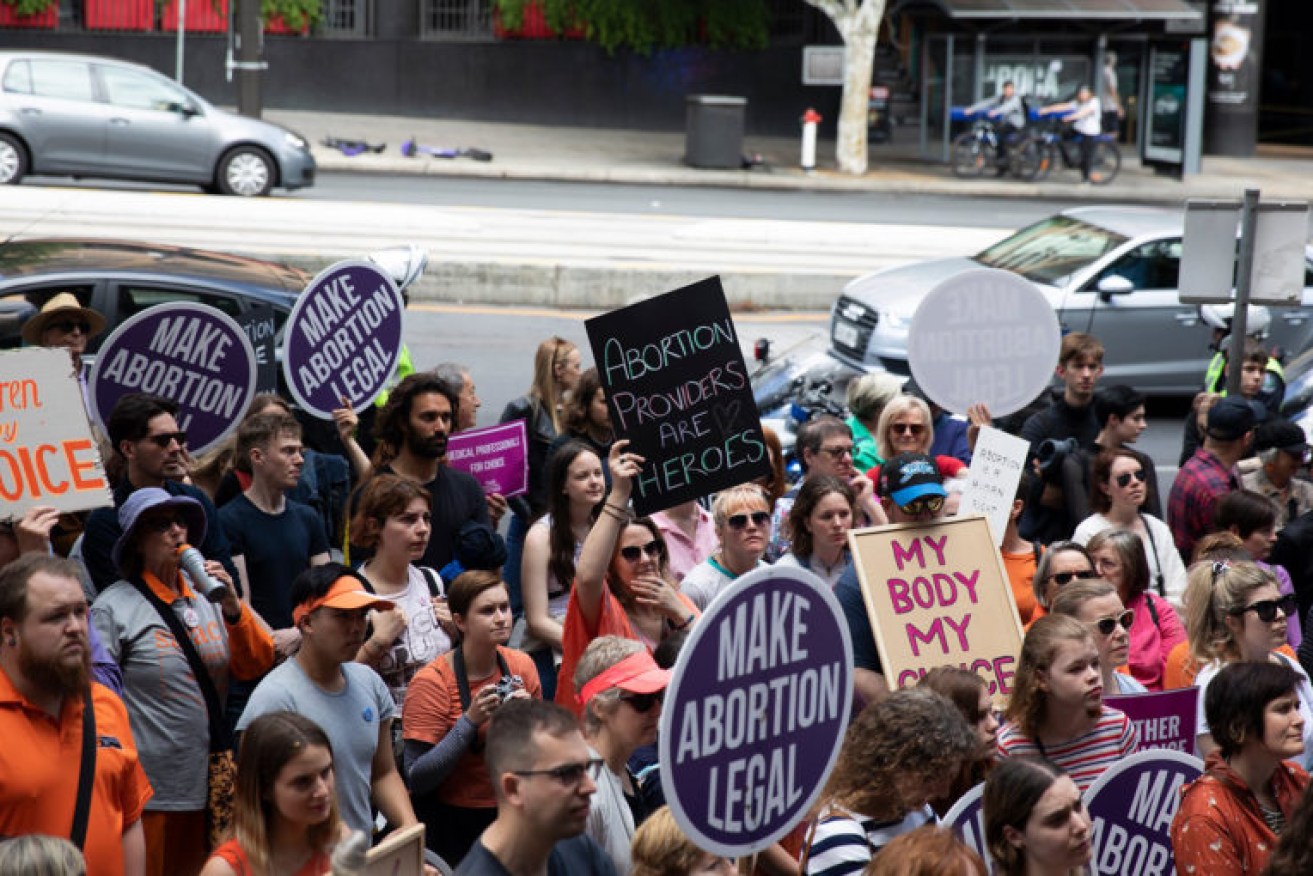Contentious abortion law reform passes Lower House
Proposed changes to South Australia’s abortion laws have passed the House of Assembly after more than 22 hours of parliamentary debate, paving the way for the medical procedure to be eliminated from the state’s criminal code for the first time in more than 50 years.


The Termination of Pregnancy bill was passed on its third reading 29 votes to 15, with the lower house adjourning just before 2:20am this morning after working through 10 remaining amendments to the proposal.
The change will see abortion moved out of the Criminal Law Consolidation Act where it has been since 1969.
It will also allow abortions to occur after 22 weeks and six days gestation if deemed “medically appropriate” by two medical practitioners, although amendments added to the bill in the last three days have tightened the provisions around when this can occur.
Late-term abortions can be approved if there is a threat to the life of the mother or another foetus, a chance of severe foetal anomalies, or “significant risk of injury to physical or mental health” of the mother if the pregnancy were to continue.
Attorney General Vickie Chapman, who proposed the reforms in October last year, hailed the house’s decision to remove “outdated barriers” to abortion access.
“I think this is an historic day for women,” she told parliament.
“I think it’s an historic day for the transformation of our management of this particular area of law – we’ve brought it into the 21st century.
“We have now made provision for women so that they don’t have to go interstate to have a service that it’s otherwise available to other women across the country.”
SA Abortion Action Coalition co-convenor Brigid Coombe said she is “relieved” abortion will soon be regulated under the health code.
“It’s been five years of intense work, starting with educating ourselves as a group of activists, educating the community educating members of parliament who were willing to be educated,” Coombe said.
Members on both sides of the house – including Labor MPs Stephen Mullighan and Tom Koutsantonis and Liberal backbencher Stephan Knoll – voted against the bill due to the provisions around late-term abortions, but noted the legislation had improved since it was amended in the house. They also supported moving the medical practice out of the criminal code, but argued this should have been voted on in a separate bill.
The lower house also last night passed an amendment prohibiting the termination of a pregnancy on the basis of gender.
This was despite criticisms from Shadow Minister for Human Services Nat Cook that the amendment was “dog-whistling at best”.
“It’s a statement to the community that we think there are people out there in our community that are prepared to terminate a baby on the basis of what gender it is,” Cook told parliament.
“I’ve spoken to dozens of people working in reproductive medicine, health, pregnancy services – there is no occurrence of this, this is just not happening.”
Coombe echoed the shadow minister’s criticisms, labelling the amendment “superfluous”.
“What sort of message does that send to the community about trusting women, trusting doctors, trusting health care professionals?” she said.
“It creates a problem that does not exist, and it creates a problem that is not solved by legislating.”
The amended bill will make its way back to the Legislative Council, where the original proposal was passed in December last year.
Greens MLC Tammy Franks criticised members of the lower house for the “very late” attempts to amend the legislation, but said the changes are not likely to affect the Upper House’s vote on the matter.
“I think some people should have perhaps taken the last several years and read the SALRI (SA Law Reform Institute) report more thoroughly,” Franks said.
“[The amendments] are suggestions that seem to occur very late in the debate.
“But none of those things will provide significant barriers to access to health care, none of those things change the fundamental that we’ve now removed abortion from the Criminal Code.
“So I imagine the Legislative Council will simply accept them.”
Shadow Environment Minister Susan Close said while she was not entirely happy with the concession amendments added to the bill, the reform was still an important step forward.
“This isn’t quite the reform that I think many people … had been looking forward to,” she said.
“But it is a very, very important day for us in South Australia.
“There are great steps forward here, not only in decriminalisation, but also that women in rural areas will particularly be advantaged by this only having to see one doctor in the early weeks when they are seeking a termination.”
Premier Steven Marshall thanked the parliament for dealing with the issue in a “very mature way”.
“I’m very grateful that the issue with regards to the termination of pregnancy will no longer be in the criminal code,” Marshall told reporters this morning.
“South Australia was lagging well behind the rest of the states and I really thank my colleagues for making sure that this reform could go through, and particularly the way that it was done in a hugely respectful way.”




